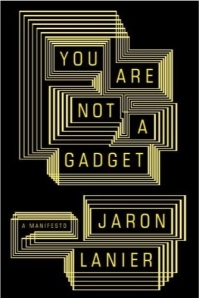
“A theological analysis of the debates provides evidence that contemporary culture’s romance with scientific naturalism leads to a serious overestimation of the power of science and springs from deadly moral and spiritual roots. A sinful humanity is itching to hear that the ultimate foundation of all life has no meaning...the popular mind seems unable to resist idolizing naturalistic explanation because it provides an all too human, all too comfortable worldview within which I can function as my own god….We must… assume the burden of challenging the popular romance that lets distorted science substitute for personal encounters with each other and with God.“ — James V. Bachman
Building off of a previous post, I have been thinking more about the problems with the analogy of the cosmos – which man is unavoidably a part of – as a machine (incidently, I was gratified to find thinking that mapped almost entirely with mine expressed here in the article by James Bachman, “Self-righteousness through popular science: our culture’s romance with naturalism” [see here if that link does not work] quoted above*)
As technology and culture writer Jaron Lanier shows us in his book, despite the fall into sin men certainly can see that there are downsides to considering human beings to be mere cogs – or perhaps nowadays, mini-computers – in a more expansive cosmic machine.
That said, fallen man may also think he detects – more or less consciously (perhaps feel is a better word) – some benefits as well (yes, these “perceptions” are illusionary):
For example….
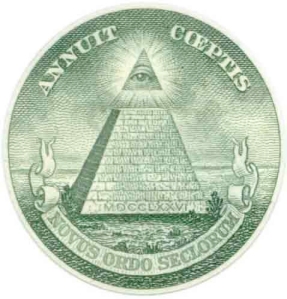
SALVATION FROM THE GUILT OF SIN:
If we are a part of the cosmic machine, then all that we “decide” to do is in some sense, basically determined. Even if we talk about chance in contrast to more deterministic forces, the laws of nature that give us diversity only allow for a range of probable outcomes that are, finally, subject to considerations that can be said to be impersonal (note previous post, This is personal) and, in short, mechanical. Of course, the idea of natural selection further reinforces this idea that we are “made” a certain way and destined, in this or that way, to do what we desire to do – or, more specifically, what our genes “want” us to do. Therefore, guilt for any “wrongdoing” becomes more of a pragmatic problem, psychologically and socially, than anything else – for we and those we desire to be found with determine “right” and “wrong” insofar as we are able.** In short, real personal responsibility and accountability becomes questionable and it is easy to see why this results in the banishment of the troublesome “Cosmic Mechanic”: We are saved from this ridiculous god who supposedly wants to run our lives one way when he made us another way.
SALVATION FROM DEATH:
In order to avoid thinking about death and what it really means, we gadgets can either, as Neil Postman put it, “amuse ourselves to death” [with the gadgets we gadgets make, evidently in our own image], or, if we are really ambitious, we can try and beat it. Here, as the cosmos is increasingly thought of in terms that, at bottom, can be reduced to the mechanical (no matter how much “organic” language is used as clothing!), the technological may be readily perceived not only as the “strong horse” (as they like to say in the Middle East), but the only horse on earth and in heaven. All things – even death itself – can be reduced to mechanical problems with mechanical solutions, as someone like Ray Kurzweil basically assure us. And naturally gifted persons like himself find themselves rising to the top as if by destiny, attaining large followings and much worldly success….. They are confident – even religiously so – that they are not only on the right side of history, but that their ideas will change history and everything else (except perhaps for the only “essences” or “substances” that are now thought to exist, the fundamental particles and the laws of nature that accompany them). Note that in today’s academic world this kind of thinking is far more mainstream than many would suspect.
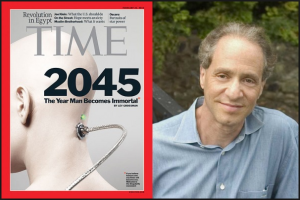
SALVATION FROM OUR ENEMIES:
Of course seeing the cosmos as mechanical banishes the fascinating but oppressive “demon-haunted” world that Carl Sagan spoke of. Further, we can more readily find relief from those who oppose us – who insist on ways or forms of life that we find incompatible with our own preferred lifestyles. When we see the world as a machine it becomes easier to reduce other human beings – particularly the ones that we are convinced are unreasonably opposed to us – to be something less than persons. They become to us mere “wetware”, “meat puppets” who only have value when we and our friends determine they deserve it. Piling fantasy on fantasy, we imagine we can be saved from those who oppose us in a more passive fashion, by retreating into our “little online worlds” that we have some control over (increasingly giving into the temptation – enhanced and made more readily available via technology – to become more self-centered and to “commodify” the world). But of course this does not work. For some look for salvation from others more aggressively, increasingly utilizing automatized technology in order to subdue those will not cooperate, either by soma-like methods (Brave New World) or perhaps a heavier hand (1984, Neuromancer). Or maybe, this is done more or less unknowingly, utilizing the impersonal “laws of economics” (Lanier is a helpful resource here as well – see the end of this post).
SALVATION FROM THE MOST OPPRESSIVE AND GREATEST ENEMY OF ALL!:
“Enemy” that is. Of course fallen man does not really know who his Enemy is, even if he thinks he does. He does not truly realize who are true and false enemies – after all, he “knows”, deep down, that God Himself – particularly as He is described in the Old and New Testaments – is his Enemy! And here, if we simply see ourselves as a machine in the larger cosmic machine it is easier to both retreat from the knowledge of Him and nevertheless attempt justify one’s self before Him***.
Let me explain. After my last post where I backed away somewhat from my pastor’s succinct appraisal of my view – “Modern man has been led away from God by the idea that the universe is simply a machine” – I realized that I had written and posted the following in the recent past:
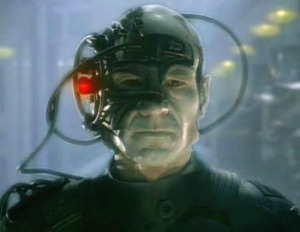
“…with an increase in functional knowledge and earthly power, man’s free powers tend to combine with devotion towards certain unbending principles and “cause-and-effect” laws (like a vending machine: ultimately manipulative “if-then” moralism), and the temptation is for this to take over completely, squelching out the last vestiges of an actual person who is God. In other words, this “highest of men”, rich in the knowledge and wisdom of the world, seeks to harness not only what have come to be known as the “laws of nature”*** and “natural law”, but any “laws of the [increasingly depersonalized] supernatural” as well (whether more or less “systematically”). This is accomplished with the help of its magicians/scientists and priests as “salvation” comes through the mighty accomplishments of the appropriate “technologies”, dealing with both the material and the “spiritual”. Here, we find that the distinction between the natural and the supernatural, for whatever its beneficial uses, has actually been of some assistance in banishing the biblical God. Therefore, writ large, as unchecked Old Adam more successfully harnesses the order inhering in the creation, in practice he makes the Creator his impersonal creation and himself salvation.****”
(end old quote from this post, part 3 in a 3 part series that is summed up here)
In other words, considering the creation – and especially ourselves – as machines is spiritually dangerous because it opens us up to the temptation to think the same about all persons, including the Creator Himself! Then, we treat Him accordingly – that is, attempting to manipulate Him as we would any other machine. In sum, such thinking only gives fuel to our desire to justify ourselves over and against Him.
That we may be Creator, Lord, and Judge.
“Would you condemn me [to non-existence or to a machine-like existence] that you may be justified?” (Job 40:8).
We would (read more on this here)
As Calvin said, the mind is an idol factory.***** An illusion factory.
Back to Jaron Lanier. I saw someone highlight a recent quote from him the other day: “We don’t yet understand how brains work, so we can’t build one.”
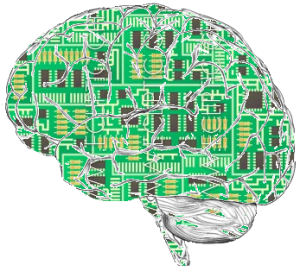
Of course Lanier does not think that the brain can be reduced to purely material and mechanical causes, even if some persons in the field of artificial intelligence might take that quotation as a call to redouble their efforts.
And why do they do that? Again, because for them the brain – and the human being in fact – is, in the end a machine of one sort or another. They just need to figure everything out. Wherein does their confidence lie? Well, again, the ideas of a certain 19th c. Englishman – that the unbelieving world just seemed to be waiting for – helps bolster their confidence that they are on the right track.
As the A.I. scientist Eliezer Yudkowsky puts it:
“Natural selection is stupid. If natural selection can solve the AGI [Artificial General Intelligence] problem, it cannot be that hard in an absolute sense. Evolution coughed up AGI easily by randomly changing things around and keeping what worked. It followed an incremental path with no foresight.” (p. 199, Barrat, Our Final Invention)
But again, I submit that this confidence does not come from Darwin’s theory per se, but the modern scientific and technological mindset (MSTM – again, see previous post on this topic) that Darwin and many other scientifically-oriented persons have allowed to drive them.
It hit me this past weekend as I talked with a fellow Cub Scout dad – a very bright man and gifted mathematician – that everything I am saying here actually dovetails rather nicely with “moralistic therapeutic deism”. As he explained the video game Spore, I noted how it sounded like a spectacular catechization into a purely Darwinian worldview – where man who emerges from the the laws of nature – the impersonal – basically creates God. A very moral man and faithful church attending Roman Catholic, this man thought the game was largely right in its view of man. I gave him much to think about, among other things that his view sounded very much like moralistic therapeutic deism to me.
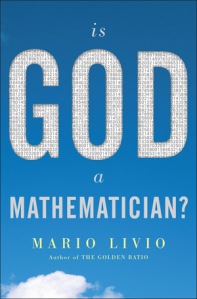
To wrap things up, my view in sum:
it is not only incorrect to say that the cosmos is a machine, but it is even dangerous to say that it is like a machine – and it is best to avoid such talk. My pastor read me right. Please note that I am not saying that all persons who currently see the cosmos as a machine think as I have outlined above, for some still identify the cosmos with the creation and see God as very much involved in it. Further, I am not saying that the errors of those who really do see nature as wholly organic, free and divine are less theologically serious.
I am simply asserting that it is normal for the practice of methodological naturalism to lead persons in this mechanical direction and for it to affect our deepest beliefs. And I think to say this is not much different from saying lex orendi lex credenda (The Law of prayer is the law of belief). As one finds some success in the world using naturalistic techniques one may begin to think, somewhat logically******, that they ought to have a very good reason for not letting their methodological naturalism become pure philosophical naturalism. Just what is that good reason? After all, they think, there is no doubt that I am understanding much about nature and learning ever better how to manipulate it. It works because it is true and its true because it works!
Please go ahead and pushback against me here – I hope you agree with me that this is an important discussion to have.
FIN
Notes:
* Also this from a page in a Francis Schaeffer book I happened to turn to the other day: “In my earlier books I have referred to Whitehead and Oppenheimer, two scientists – neither one a Christian – who insisted that modern science could not have been born except in the Christian milieu. Bear with me as I repeat this, for I want in this book to carry it a step further, into the area of knowing. As Whitehead so beautifully points out, these men all believed that the universe was created by a reasonable God and therefore the universe could be found out by reason. This was their base. Modern science is the original science, in which you had men who believed in the uniformity of natural causes in a limited system, a system which could be reordered by God and by man made in the image of God. This is a cause and effect system in a limited time span. But from the time of Newton (not with Newton himself, but with the Newtonians who followed him), we have the concept of the “machine” until we are left with only the machine, and you move into “modern modern science,” in which we have the uniformity of natural causes in a closed system, including sociology and psychology. Man is included in the machine. This is the world in which we live in the area of science today. No longer believing that they can be sure the universe is reasonable because created by a reasonable God, the question is raised which Leonardo da Vincit already understood and which the Greeks understood before that; “How does the scientist know; on what basis can he know that what he knows, he really knows?” (He is There and He is Not Silent, p. 43, 1972)
**An interesting example my pastor thought of:Slumdog Millionaire relieved the angst of the actors and actresses in Hollywood by convincing them that they need not feel guilty about their popularity and wealth, it was just a matter of chance; if it was not them, it would have been someone else.” Note that this kind of thinking could be encouraged either by [mechanistic] naturalism or the kind of neo-polytheism promoted by Herbert Dreyfus and Sean Dorrance Kelly where the idea is that the gods and goddesses come into being to explain the unexplainable to man. (see my critique on their book All Things Shining here)
***Though it seems to me that in reality, the one they are trying to please and appease through their deeds – this “hard man” – is actually the one to whom they are enslaved, the devil.
****I went on: “As a result of this, the human person – not considered in light of the Divine person of Jesus Christ and His love for all – is inevitably trodden underfoot, as at least some persons inevitably become means to other ends.”
*****This is a great quote, and also interesting for me in that even it makes the mind sound mechanical in our modern age!
******Why “somewhat”? Well, deism actually makes more sense than atheism in one way, because deism not only banishes a god who is distinct from his creation (this is in line with biblical theism) – where god is said to remove himself from the clock – but also acknowledges that this god will still judge man in some way. And of course, here man imagines that he can, by cooperating with god’s system, justify himself before him in one way or another. This is obviously not right, but it is more right than subsuming god in the impersonal system and making him become a part of it.
Of course, I am saying that the practical implications of deism and atheism end up going more or less in the same direction. Why do many atheists refuse to become deists, a la Anthony Flew? The reasons are many, but here is how some justify this: in the practice of the physical sciences, observation of course plays a key role. If the Designer of the machine cannot be directly observed, one might say that an application of “Occam’s Razor” should cast him out. After all, the chain of causation must stop somewhere – why not with the universe itself that we can consistently observe to one degree or another? Of course here the main problem is still this, which was noted in my first post on this topic: we observe an orderly universe, and how is it that one would have an orderly universe without purpose and purpose without an Intelligence, a Mind, of some sort?
**********************************************
Related post on the temptations posed by information technology here.
Images: Wikipedia, Kurzweil: http://www.evidenceunseen.com/theology/practical-theology/the-eternal-perspective/















